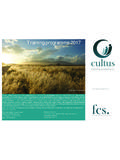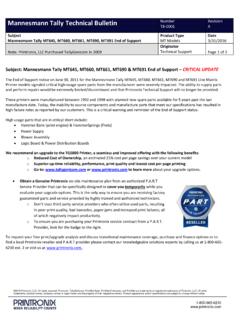Transcription of TRUSTS - Lee Legal
1 Directors: Christopher Lee (BA LLB Wits) Alison Lee (BA LLB Univ Natal) (PMB) 75 King Street, Berario Johannesburg, 2195 Box 731336, Fairlands, 2030 VAT No: 4590178549 Tel: +27 11 476-3217 Fax: +27 11 4869863 Chris: 083 628-8707 TRUSTS In South Africa, there are basically three types of TRUSTS . These are: Inter vivos TRUSTS or living TRUSTS , testamentary TRUSTS and bewind TRUSTS . Testamentary TRUSTS are created at the winding up of a deceased estate following a specific stipulation in the deceased person's will that a trust must be set up. Testamentary TRUSTS are usually created to hold assets on behalf of minor children, since minor children cannot in terms of South African law inherit anything (in the absence of a trust , assets from the deceased estate left to minor children are sold, and the money is paid to them when they reach adulthood).
2 Bewind TRUSTS are created as trading vehicles providing Trustees with limited liability and certain tax advantages. An Inter-Vivos trust is established by someone during their lifetime to manage certain assets or investments and support beneficiaries, such as family members. These can be vested or discretionary TRUSTS . In vested TRUSTS , the benefits of the beneficiaries are set out in the trust deed. In discretionary TRUSTS the Trustees have full discretion at all times about how much each beneficiary is to benefit. trust TERMINOLOGY UNPACKED Inter vivos: A trust created during the settlor s lifetime is known as an inter vivos trust .
3 Testamentary: If a trust is created as a consequence of the settlor s death, for example under the will or a beneficiary designation of the settlor, it is called a testamentary trust . Discretionary: In a discretionary trust , the Trustee is given discretion to make certain decisions, usually regarding the amount and timing of distributions and sometimes, which beneficiary. Non-discretionary: In a non-discretionary trust , the distribution scheme is spelled out in the trust document and the Trustee has no discretion regarding distributions. Page 2 of 16 _____ BASICS OF A trust INSTRUMENT 2015 Family trust : When the beneficiaries of a trust are all family members, the trust is referred to as a family trust .
4 Not all TRUSTS that are used in estate planning are family TRUSTS . For example, a trust may be for philanthropic goals and have a charitable organization as the beneficiary Founder (also known as the "settler" or "donor") is the individual who forms the trust . Trustees are akin to the managers of a company who manage the assets of the trust for the purpose and the objectives as set out in the trust Deed for the benefit of the beneficiaries. Beneficiaries are the individuals and/or organisations and institutions who qualify to benefit from the trust either by receiving income and/or capital from the trust .
5 Beneficiaries may have vested rights, which give them entitlement to something, or discretionary rights, which entail that they are potential beneficiaries but are only entitled to receive a benefit once the Trustees have made a decision to benefit them. PARTIES TO A trust Trustees The Trustees are the custodians of the assets in the trust , but do not necessarily have an interest in the assets. In order to promote the independence of the trust , it is advisable to appoint at least one independent Trustee Beneficiaries The beneficiaries are the individuals / entities entitled to benefit from the trust assets or income Donor / Founder Person setting up the trust WHAT IS AN INTER-VIVOS trust ?
6 An Inter-Vivos trust is established by someone during their lifetime to manage certain assets or investments and support beneficiaries, such as family members. An Inter Vivos trust is a core and most effective form of estate planning. At the outset, an Inter Vivos trust must be distinguished from a Testamentary trust . The former is created during the lifetime of a person by agreement between that person (referred to as the Founder) and another person(s) who is referred to as the Trustee(s). By creating an Inter Vivos trust an individual essentially creates another Legal entity in which certain assets can be housed, which then will be administered and dealt with in terms of the trust Deed created by the Founder.
7 Page 3 of 16 _____ BASICS OF A trust INSTRUMENT 2015 These TRUSTS are governed by a trust deed, rather than a Will. These TRUSTS allow assets to be managed on behalf of beneficiaries and, in some cases, generations of a family, without having to passthrough the estate of family members that have passed away. An Inter Vivos trust is often referred to as a Family trust , and is an entity which is formed during the life of a person. Typically, a Settlor or Donor will enter into a contract with Trustees, the terms of which will be contained in a Deed of trust , in terms of which the Settlor will donate to or settle upon the trust , a sum of money in order to establish the trust , and appoint Trustees to administer the trust fund, for the benefit of beneficiaries which will be described in the trust Deed.
8 The objects of the trust are usually to provide an income for the beneficiaries, to provide funds for the housing, care, maintenance, education, general welfare, recuperation, health, entertainment or pleasure or advancement of life of the interests of any beneficiary, and to transfer the assets to the capital beneficiaries upon termination of the trust . Inter Vivos TRUSTS can be created with the Vesting of assets or benefits in beneficiaries stipulated in the trust Deed whereby the assets vest in the named beneficiaries, but the assets and benefits flowing from them, are required to be administered by the Trustees until the happening of a certain event.
9 More common forms of Inter Vivos TRUSTS are Discretionary TRUSTS in which the Trustees are authorised to use their discretion in determining how the benefits flowing from the trust are to be distributed amongst beneficiaries. In these types of TRUSTS , the vesting of benefits or assets in beneficiaries is delayed until the exercise of such discretion by the Trustees. TESTAMENTARY TRUSTS Testamentary TRUSTS are commonly known as a Will TRUSTS . These types of trust are created in terms of the Will of a deceased person. Will TRUSTS cannot be registered with the Master of the High Court during the lifetime of the Testator (the person making the will), as they do not come into existence until the death of the Testator.
10 Set up and administration charges pertaining to the Will trust are therefore postponed until the death of the Testator, when the Will trust comes into existence. Will TRUSTS are usually incorporated in Estate Planning where a Testator wishes to protect certain assets in his or her Estate for the benefit of certain beneficiaries, or to limit beneficiaries personal administration and management of certain assets, or as a protection against the beneficiaries themselves. The terms of a Will trust are typically not contained in such detail as they are in an Inter Vivos trust where the trust Deed may run into 25 pages or more.



